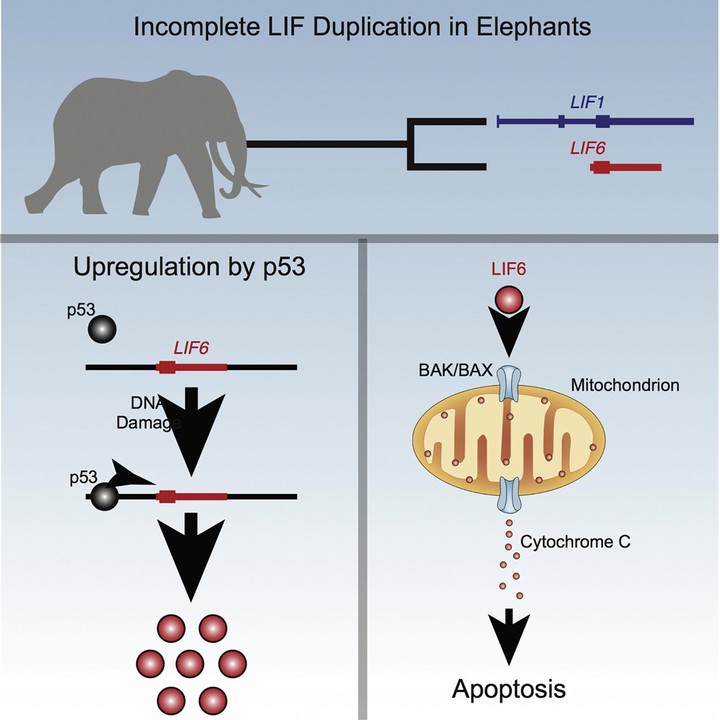A Zombie LIF Gene in Elephants Is Upregulated by TP53 to Induce Apoptosis in Response to DNA Damage
 Graphical Abstract from Cell Reports
Graphical Abstract from Cell Reports
Abstract
Large-bodied organisms have more cells that can potentially turn cancerous than small-bodied organisms, imposing an increased risk of developing cancer. This expectation predicts a positive correlation between body size and cancer risk; however, there is no correlation between body size and cancer risk across species (“Peto’s paradox”). Here, we show that elephants and their extinct relatives (proboscideans) may have resolved Peto’s paradox in part through refunctionalizing a leukemia inhibitory factor pseudogene (LIF6) with pro-apoptotic functions. LIF6 is transcriptionally upregulated by TP53 in response to DNA damage and translocates to the mitochondria where it induces apoptosis. Phylogenetic analyses of living and extinct proboscidean LIF6 genes indicates that its TP53 response element evolved coincident with the evolution of large body sizes in the proboscidean stem lineage. These results suggest that refunctionalizing of a pro-apoptotic LIF pseudogene may have been permissive (although not sufficient) for the evolution of large body sizes in proboscideans.